What We Offer
Applying to U.S. universities is more than filling out forms – it’s a journey that combines academic rigor, personal growth, and strategic storytelling. We strengthen every step of your US college application with personalized, results-driven mentorship.
Balanced College List Strategy
We help you create a mix of reach, match, and safety schools, factoring in your academic profile, career goals, and scholarship potential.
Standardized Test Planning
Get expert prep guidance for the SAT, ACT, TOEFL, IELTS and other required exams – with timelines that don’t clash with schoolwork.
Standout Essay Development
Your story matters. We work with you to brainstorm, outline, and refine compelling personal and supplemental essays that resonate with admissions officers.
Activity Profile Building
We shape your extracurricular profile into a narrative that reflects leadership, initiative, and impact – all essential in holistic review.
Interview Preparation
Mock interviews and coaching to help you respond confidently, showcase your personality, and articulate your academic passion.
Application Support
From Common App to university-specific portals – we ensure your transcripts, recommendations, and forms are complete, coherent, and submitted on time.
Join The Success
Our Students Study At
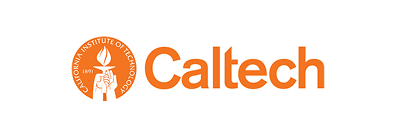



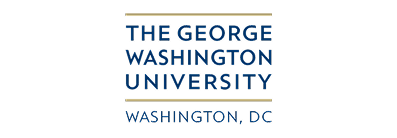
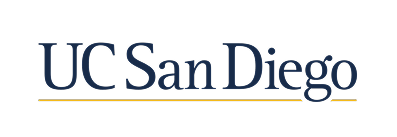

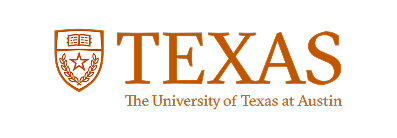
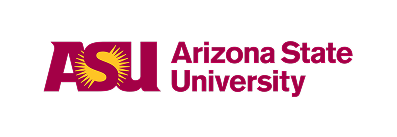
.png)




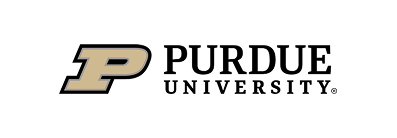

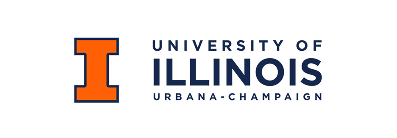
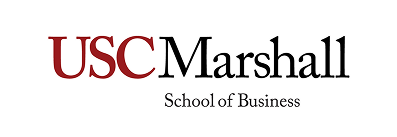




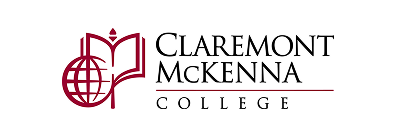




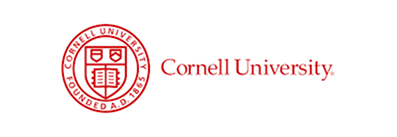

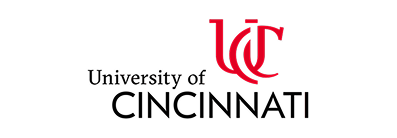
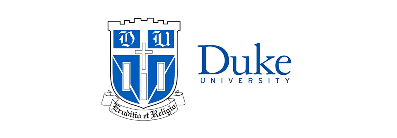
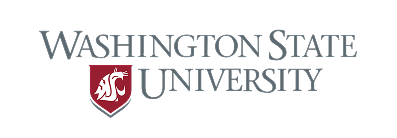
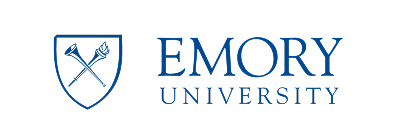
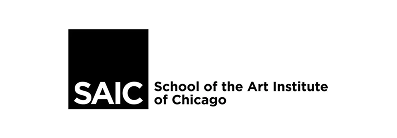
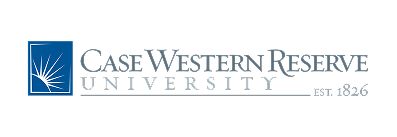
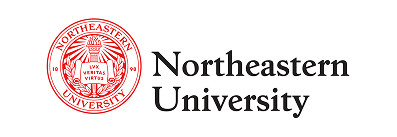
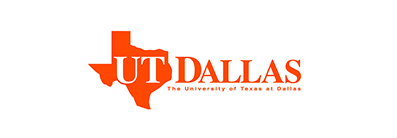
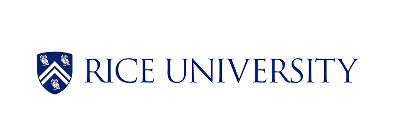
.png)

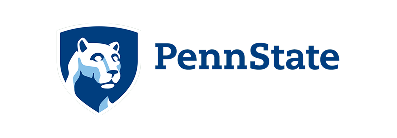

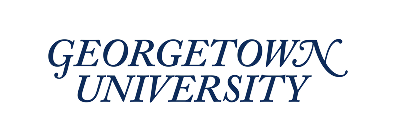


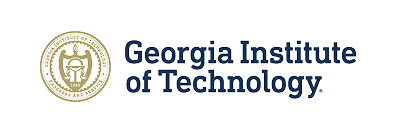


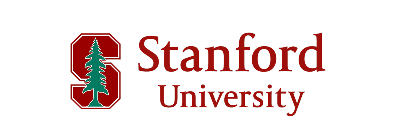
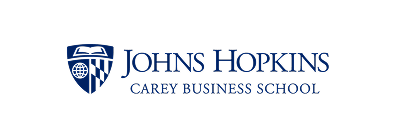
Why Choose UniHawk?
Top School Admits
- We’ve helped students gain acceptance to Harvard, Stanford, Columbia, UCLA, NYU, and more – with scholarships worth millions.
Elite Admission Expertise
Our counselors are US university alumni and former admissions advisors who bring inside knowledge to every step of your journey.
Personalized Approach
We tailor strategies to your goals, strengths, and interests, ensuring every component of your application speaks with purpose and clarity.
94%
Students Get Target Admits
US Study Dream Achieved
89%
Early Decision Success Rate
Strategic Timing Excellence
650+
Students Guided To US
Proven Application Expertise
$2.8M
Scholarships Secured Total
Financial Aid Excellence
91%
Common App Success Rate
Application Platform Mastery
87%
Students Submit All Deadlines
Perfect Timeline Management
10.5
Universities Per Student Applied
Balanced Portfolio Strategy
Testimonials

Dhruvi

Vanshi

Guntas Singh

Ratan

Vishal

Christine George
Dubai International Academy

Neev Barua
Dubai English Speaking Schools

Thiya Jain
GEMS Modern Academy
Ivy League Dreams Built Through Determined Steps
Watch Prerita’s inspiring journey of hard work, dedication, and how she made it to the University of Pennsylvania (UPenn) with our guidance by her side.
Turning Passion For Medicine Into A Top University Admit
Witness how a childhood injury sparked Dhruv’s dream, leading him to Imperial College London. With our guidance and his determination, he aced the UCAT and turned vision into reality.
From Uncertainty To The University Of Helsinki
See how Arjun’s journey from indecision to determination shaped his future. With focused guidance and his resilience, he discovered the right path.
From UCAT 3050 To The University Of Manchester
See how Varshitaa turned ambition into achievement. With guided mentorship and everlasting efforts, she secured her dream seat in Medicine.
Turning A Dream Score Into Multiple University Offers
Discover how Garv’s exceptional SAT score of 1530, strategic planning, and dedication - combined with our expert guidance, led to admission offers from 7 top US universities.
Meet Your Counselors

Areesha Velani
Global Admissions Advisor
Areesha Velani, Director of Admissions at UniHawk, is an education consultant with over four years of educational experience. She hails from Pakistan, and grew up between Dubai and Texas to gain the unique perspective she has today. Armed with a Psychology and Business degree from Baylor University in Texas, she combines her expertise in education, marketing, administration, and psychology to guide students to top-tier institutions like Brown, Cambridge, McGill, UC Berkeley, and more.
Areesha’s passion for mentoring, coupled with her passion for travel, shapes her approach to empowering students on their educational journey. Interested specifically in adolescent psychology, she hopes to empower students in her holistic mentoring methods throughout their secondary educational experience.

Akshatha Achar
Arts Admissions Coach
Akshatha graduated from Emory University with a double major in International Relations and Music (vocal performance). At Emory, she was part of the Emory Concert Choir, the Emory Jazz Alliance, the university acapella group, and Theater Emory. During her time in Atlanta, she worked as an Economics Undergraduate Research Assistant and published research papers on a variety of political topics. She is also a supporting author in the Routledge Handbook on Arab Media, edited by Noureddine Miladi and Noha Mellor.
After working as a Writing Instructor at Emory for two years, she continued her work as an educational consultant in Dubai and has helped students secure placements at Yale, Princeton, Georgia Tech, Emory, UCLA, UC Berkeley, USC, Tufts, among other stalwart institutions in the US. She also has expertise in coaching students in art portfolio development- particularly those interested in pursuing the performing or visual arts. In only a couple of years, Akshatha will be a lawyer – with a graduate degree from Fordham University.

Ijaaz Jackaria
STEM & Ivy League Mentor
Ijaaz Jackaria was born and raised in Mauritius. He completed his BA at the University of Chicago on a full-ride scholarship, where he majored in Philosophy and minored in Physics and Middle Eastern Studies. During his time at UChicago, he interned in China and India in the field of Education Consulting. He was also the Director of a community-based education program in Chicago.
Post graduation, in 2019, he moved to Dubai where he worked for 3 years as a senior Educational Consultant. He has mentored hundreds of students, many of whom got admitted to the Ivy Leagues, Stanford, UChicago, UC Berkeley, etc. Several of these students also secured full financial aid from US universities. His “specialization” as a consultant is in the STEM field and traditional academic fields (Economics/Business/Humanities) for the top-tier undergrad programs in US/Canadian/UK universities.
Ijaaz recently completed a Master of Science in Comparative Education and International Development at the University of Edinburgh.

Rizwana Anjir Rahman
Global Admissions Counselor
Rizwana Anjir is a dedicated educator and counselor hailing from India, with an academic background boasting triple majors in Literature, Psychology, and Journalism. With over 8 years of experience in primary and secondary education, she is deeply committed to student-centered teaching methodologies, prioritizing active engagement, and empowering learners throughout their educational journeys.
She fosters inclusive learning environments and promotes student empowerment. Additionally, her impactful work in the non-profit sector as a youth mentor focused on bridging educational gaps for children from under-resourced communities within the Indian landscape.
Currently, her expertise extends beyond traditional teaching roles into career counseling, psychometric testing, student recruitment, and profile building for international students in the GCC. She excels in various facets of educational management, including classroom dynamics, lesson planning, curriculum design, and performance evaluation.

Jon Castro
Ivy Admissions Mentor
With over eight years of expertise in college admissions, Jon’s journey as an education consultant started after graduating from Middlebury College in 2014 when he moved to China. There, immersed in China’s rich culture and cuisines, Jon has helped hundreds of students achieve their academic goals, build incredible personal projects, and guide their progression into becoming capable young adults.
After 6 years in China, Jon moved back to his hometown, New York City, to help American students get into top American universities, find scholarships, and give back to their communities. He has helped students secure seats at all the top 50 schools, from the Ivies to art institutions and engineering colleges.
In his free time, Jon enjoys learning about cutting-edge tech, reading sci-fi, and cooking. Feel free to geek out with Jon on any of these topics or share with him anything that fascinates you!

Shokhrukh Nurmatov
Economics & Admissions Strategist
Shokhrukh Nurmatov graduated from Georgetown University in Qatar, majoring in International Economics and minoring in Government. He is an MBA candidate at NYU Stern, specializing in Finance and studying on an 85% scholarship. With a background in education consulting, he has supported over several students through the college admissions processes around the world. His students received offers from top universities like Columbia, UPenn, UCLA, and Georgetown, often getting accepted to 8 or more schools each. He also designed long-term academic and extracurricular plans and maintained an 80% conversion rate in consultations.
Before diving into the education field, Shokhrukh worked in data and strategy roles at Snoonu and Growth, where he developed dashboards in Tableau and provided insights to support business decisions. Outside of work, he enjoys youth mentoring and has competed in several business competitions, including the World Bank Group Case Challenge and Qatar’s QBIC Hackathon and QIC Program.

Arian Alexander Andalib
Astrophysics & People Connector
Arian Alexander Andalib (Ari) is a recent graduate of Michigan State University, where he earned a Bachelor of Science in Astrophysics with a Minor in Computational Mathematics, Science, and Engineering. Originally Iranian, born in the United States, and raised in Dubai, Ari brings a unique blend of cultural perspectives and international experience with him. Though he has a strong academic foundation in STEM, Ari’s true passion lies in connecting with people. He thrives in roles that allow him to communicate with an array of people and build life-long relationships.
While at MSU, Ari served as an undergraduate research assistant at the Facility for Rare Isotope Beams (FRIB), one of the most advanced particle accelerator facilities in the United States. His work focused on nuclear astrophysics, specifically mass accreting neutron stars. In addition to conducting research and writing research papers (of which he has co-authored 4), Arian also took in new undergraduate researchers, guiding them through the theoretical foundations and purpose behind their projects.

Sara Thennakoon
Higher Education Specialist
With over 4 years of experience in higher education counselling, I have supported students with university admissions in the UK, Australia, New Zealand, the US, Ireland, Finland and other European countries. I’ve worked with over 300 students, including several complex and sensitive profiles. My diploma in Psychology and Counselling from IMBS Green Campus, Sri Lanka, has helped me develop strong communication skills and a more personalised approach when working with students. I aim to understand each student’s situation and guide them in a way that suits their personality and needs. Working closely with both students and universities, I make sure the entire process runs smoothly from start to finish. This work is something I truly enjoy.

Rachel Mani
Higher Education Pathway Specialist
I am an experienced student counselor with over 5 years in the international education industry, guiding students toward higher education opportunities in Canada, Germany, Ireland, New Zealand, and the USA. I hold dual master’s degrees – an MBA in Media & Entertainment and an MA in Mass Communication (Journalism & PR) – which have equipped me with strong communication, counseling, and interpersonal skills.
My expertise lies in offering personalized guidance based on students’ academic goals, career interests, and financial background. I have successfully supported numerous students through the entire journey—from course and university selection to application, visa processing, and pre-departure preparation. I’ve also actively participated in school visits and education fairs across the UAE and Saudi Arabia, building strong relationships with both students and institutional partners.

Akshay Nair
Global Admissions Mentor
With over 3 years of experience in student counseling, I specialize in guiding students through every stage of the university admissions journey. I hold a Bachelor’s degree in Management Studies with a specialization in Finance from Mumbai University. My approach is personalized and student-focused, helping each individual confidently navigate course selection, applications, and visa processes. I’ve successfully supported students in securing admissions to top universities across the UK, the US, Australia, and Europe. I enjoy connecting with students, understanding their aspirations, and being part of their academic journey. Nothing excites me more than meeting new students and helping them take their first steps toward a global education.

Snehal Shewale
University Application Expert
With over a decade of experience in international education counseling, I specialize in guiding students through successful admissions to top universities in the USA, UK, Canada, Europe, and the UAE. I have mentored several students across a wide range of disciplines, including Business, Engineering, Fine Arts, and Medicine. My expertise lies in simplifying complex admission and visa processes, ensuring a smooth and confident transition for students pursuing higher education abroad. Dedicated to student success, I am committed to helping you achieve your academic and career goals.

Haider Abbas
Higher Education Specialist
With over 14 years of experience in higher education counseling, I specialize in guiding students toward academic paths that align with their unique strengths, goals, and interests. I take pride in understanding each student’s profile and providing personalized support throughout every stage of the admissions process, from program selection to application strategy and beyond. Whether students are applying to competitive programs or exploring diverse study destinations, my aim is to ensure they feel confident, informed, and well-prepared every step of the way.

Kajol Khemani
Personalised Student Advisor
With a background in Human Resources and a passion for student guidance, I support students through the university application process with a detail-oriented and personalised approach. My Master’s in Business Administration and Diploma in Interior Design help me connect with diverse student profiles, especially those applying to creative and business-related fields. I aim to make each student’s journey smooth and goal-focused, ensuring they feel confident and well-prepared at every stage.

Sheikh Owais
Global Admissions Specialist
With over 10 years of experience, I help students from around the world navigate their academic journey and secure admissions to top universities in the UK, USA, Canada, Australia, UAE, and Europe. I began counseling at Alliant International University in San Diego, CA USA in 2014, where I also lived the life of an international student.
A Magna Cum Laude graduate with three degrees (BBA, BSc IMC, MBA IMC), Throughout my career I have been a Teaching Assistant, Research Assistant, Enrolment Counselor, Account Manager and Sales & Marketing Specialist. I blend my marketing expertise with a deep understanding of global education systems. Having supported students from Europe, Central Asia, Southeast Asia, the GCC, North America and South America my focus is always on providing smart, personalized education solutions

Mashar Mirza
Global Education Consultant
With over 8 years of international experience across the UAE, India, and Malaysia, I have successfully guided students through the entire higher education journey – from initial inquiry to final enrollment. My approach combines personalized academic and career advising with practical support on program selection, application strategy, and visa procedures. A strong communicator and relationship-builder, I have developed lasting trust with students, parents, and education stakeholders. I’ve also led successful university partnerships and designed short-term and summer mobility programs, significantly increasing institutional visibility, enrollment, and global brand presence.
FAQs
When should I start working on my US college applications?
Ideally, you should begin preparing during Grade 11 or even earlier. Starting early gives you time to build your profile, prepare for standardized tests, and craft strong essays.
What are the major deadlines for US university applications?
Application deadlines vary by type – Early Decision and Early Action deadlines typically fall in November, while Regular Decision deadlines are usually in January.
What’s the difference between Early Decision, Early Action, and Regular Decision?
Early Decision (ED) is binding, meaning you must attend if accepted. Early Action (EA) is non-binding, allowing you to apply early without committing. Regular Decision (RD) has later deadlines and offers more flexibility.
Does applying early improve my chances of getting accepted?
In many cases, yes. Applying early can show strong interest and sometimes comes with higher acceptance rates. However, your profile must still be competitive.
Where do I submit my applications to US universities?
Most universities use the Common App, but others may use platforms like Coalition App or their own portals. We guide you through each one as needed.
How many US colleges should I apply to?
We recommend applying to a balanced list of 8–12 schools, including reach, match, and safety options, tailored to your profile and preferences.
Do US universities offer scholarships or financial aid?
Yes. Many offer merit-based scholarships, need-based aid, and some are need-blind for international students. We help identify and apply to schools that fit your financial needs.
What’s the difference between merit-based scholarships, need-based aid, and need-blind admissions?
Merit-based aid is awarded for academic or extracurricular excellence. Need-based aid depends on your financial background. Need-blind means the school reviews your application without considering your financial status.
What is the total cost of attending a US university?
It varies, but typically ranges from $40,000 to $90,000 per year, including tuition, living expenses, and other fees. We help plan financially through scholarships and aid options.
I’m not in an American curriculum. Do I need to convert my grades to GPA?
No. US colleges are familiar with international grading systems. However, we help present your academic records in a way that’s understandable to US admissions officers.
Are AP tests mandatory for US college applications?
AP tests are not mandatory but can strengthen your academic profile, especially for competitive universities and intended majors.
How important are extracurricular activities for US admissions?
Very important. US universities seek well-rounded students. We help you build a strong activity profile that reflects your leadership, creativity, and initiative.
Do internships or work experience count as extracurricular activities?
Yes, internships, part-time jobs, and meaningful work experiences are considered valuable and can be included in your application.
How many letters of recommendation do I need?
Most universities require two teacher recommendations and one counselor letter. Some allow or encourage additional letters if they add new perspectives.
How many essays do I need to write?
You’ll write at least one Common App personal statement, and many colleges require supplemental essays tailored to their school-specific prompts.
How long are US college essays?
The Common App essay is up to 650 words. Supplemental essays vary in length, typically ranging from 100 to 500 words.
Do I need to take English language proficiency tests like TOEFL or IELTS?
Yes, if English is not your first language or if your school does not teach primarily in English, most US universities will require TOEFL or IELTS scores.
Do I need to travel to the US for college interviews?
No. Most interviews are conducted virtually or through alumni in your home country. We help you prepare for these interviews to make a lasting impression.
